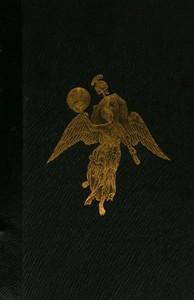Read this ebook for free! No credit card needed, absolutely nothing to pay.
Words: 145271 in 49 pages
This is an ebook sharing website. You can read the uploaded ebooks for free here. No credit cards needed, nothing to pay. If you want to own a digital copy of the ebook, or want to read offline with your favorite ebook-reader, then you can choose to buy and download the ebook.


: The Roman Wall A historical topographical and descriptive account of the barrier of the lower isthmus extending from the Tyne to the Solway deduced from numerous personal surveys by Bruce J Collingwood John Collingwood - Great Britain Antiquities Roman; W
The site of Newcastle-upon-Tyne, the PONS AELII of the Romans, is here shewn. The ground on which it stands, rising abruptly from the bed of the river Tyne, to the height of about an hundred feet, is cut into three very remarkable tongues of land by four ravines, permeated by as many streams, which all disembogue in the Tyne. The easternmost and largest of these tongues of land is that formed by the Ouseburn and Pandon-dean; the smallest by Pandon-dean and the Lort-burn; and the westernmost, wheron stands the castle, and formerly the Roman station, by the Lort-burn and Skinner-burn. Extensive suburbs probably occupied all these eminences.
Footnote 1:
The Plan represents the position of each stone now remaining in the river. It is the result of a series of observations made during the summer of 1850, by Mr. Robert Elliot, of Wall. Most of the stones have luis-holes.
~The Roman Barrier of the Lower Isthmus.
IN no country of the world are there such evident traces of the march of Roman legions as in Britain. In the northern parts of England especially, the footprints of the Empire are very distinct. Northumberland, as Wallis long ago remarked, is Roman ground. Every other monument in Britain yields in importance to THE WALL. As this work, in grandeur of conception, is worthy of the Mistress of Nations, so, in durability of structure, is it the becoming offspring of the Eternal City.
A dead wall may seem to most a very unpromising subject. The stones are indeed inanimate, but he who has a head to think, and a heart to feel, will find them suggestive of bright ideas and melting sympathies; though dead themselves, they will be the cause of mental life in him. A large part of the knowledge which we possess of the early history of our country has been dug out of the ground. The spade and the plough of the rustic have often exposed documents, which have revealed the movements, as well as the modes of thought and feeling, of those who have slept in the dust for centuries. The casual wanderer by the relics of the Vallum and the Wall, may not succeed in culling facts that are new to the Historian, but he will probably get those vivid glances into Roman character, and acquire that personal interest in Roman story, which will give to the prosaic records of chroniclers, a reality, and a charm, which they did not before possess.
As a natural introduction to the subject, and as a means of preparing for some discussions which are to follow, it may be well briefly to trace the progress of the Roman arms in Britain, from the arrival of Caesar on our shores, to the eventual abandonment of the island.
It is curious to observe, that the curtain of British history is raised by some of the earliest and greatest of profane writers. Herodotus, who wrote about the year B.C. 450, mentions the "Cassiterides, from which tin is procured"; Aristotle, about the year B.C. 340, expressly names the islands of Albion and Ierne; and Polybius, about the year B.C. 160, makes a distinct reference to the "Britannic Isles." To Julius Caesar, however, we are indebted, for the first detailed account of Britain and its inhabitants. On 26 Aug. B.C. 55, that renowned conqueror landed in Britain, with a force of about ten thousand men. Both on that occasion, and on a second attempt, which, with a larger force, he made the year following, he met with a warm reception from the savage islanders. Tides and tempests seconded the efforts of the natives, and great Julius bade Britain a final farewell, without erecting any fortress in it, or leaving any troops to secure his conquest. Tacitus says, that he did not conquer Britain, but only shewed it to the Romans. Horace, calling upon Augustus to achieve the conquest, denominates it 'untouched'--
Intactus aut Britannus ut descenderet Sacra catenatus via.
... A kind of conquest Caesar made here; but made not here his brag Of, came, and saw, and overcame: with shame he was carried From off our coast, twice beaten; and his shipping on our terrible seas, Like egg-shells moved upon their surges, cracked As easily 'gainst our rocks.
During the reigns of Augustus, Tiberius, and Caligula, Britain was unmolested by foreign invasion.
On the return of Claudius, the supreme command again devolved upon his lieutenant, Aulus Plautius, who succeeded in bringing into complete subjection, the tribes occupying the southern portion of the island. In this expedition, Vespasian, afterwards emperor, acted as second in command to Plautius. Titus, the son of Vespasian, accompanied his father. Thus was it, in Britain, that the destroyers of Jerusalem were unconsciously trained for inflicting upon God's chosen, but sinful people, the chastisements of His displeasure.
Free books android app tbrJar TBR JAR Read Free books online gutenberg
More posts by @FreeBooks

: Vijftien dagen te Londen op het einde van 1815. by Defauconpret A J B Auguste Jean Baptiste - London (England) Social life and customs 19th century


: Matkustus Brasiliassa: Kuvaus luonnosta ja kansoista Brasiliasta by Vainio Edv A Edvard August - Brazil Description and travel; Natural history Brazil; Brazil Social life and customs 19th century






